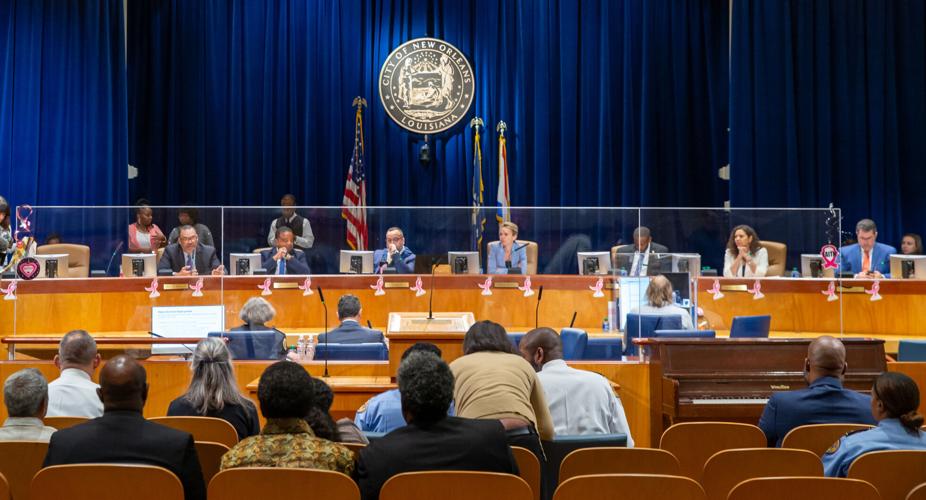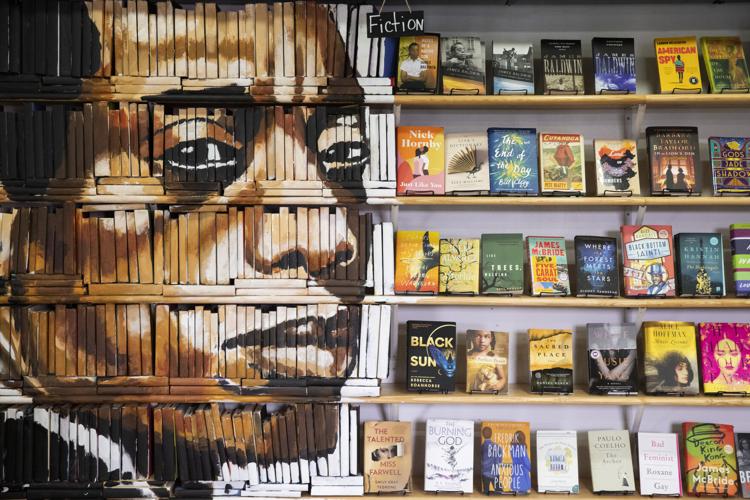When major events like Super Bowl or the NCAA Final Four come to town, the tourist-heavy sections of New Orleans get a new set of rules and restrictions. Handing out free samples is banned, as is playing amplified music. Permits to sell goods on the street are restricted, and businesses can't fly banners, flags or balloons to advertise their services.
The rules are enforced within what are known as "clean zones" that protect event sponsors and organizers from competition.
And while the process for approving them is typically routine, a clean zone ordinance proposed for the upcoming Essence Festival of Culture faced a host of criticism during the New Orleans City Council meeting last week, prompting council members to approve a last-minute change that ensured the city, and not the festival organizers, would have ultimate authority for certain permits when Essence comes to town in July.
Though the change to the festival rules was small, the clean zone discussion could take on greater prominence as New Orleans officials ramp up their preparations for next year's Super Bowl, set to take place in the Caesars Superdome in February.
Critics of clean zones say that sweeping changes are needed to ensure that the rights of local business owners and residents are protected when the city plays host to major events.
And while officials involved in the city's hospitality industry acknowledge that businesses' normal activities need to be protected, they argue that clean zones are a necessary part of hosting major events.
"Given the size of these events and the cost of sponsorships, it is important to protect the integrity of the host-sponsor relationship," said Michael Hecht, president and CEO of Greater New Orleans Inc., who was recently tapped by Gov. Jeff Landry to help lead the city's Super Bowl preparations. "That being said, businesses going about their normal day-to-day activity in a way that doesn't impinge on those specific relationships should be absolutely fine."
Clean zone ordinances have become a standard tool used by New Orleans and cities across the country to woo event hosts, and the City Council typically approves a few clean zones downtown per year.
French Quarter Festival, Essence Fest and major sporting events have all received the designation. Restrictions on business activities in a small area around the Fairgrounds during the New Orleans Jazz & Heritage Festival are written into the city code.
In a presentation before the council on Thursday, Jade Brown Russell, a consultant representing Essence, emphasized that clean zones have a long history in the city and that businesses' regular activities are not restricted.
The goal of the clean zone, Brown Russell said, is to deter big brands from descending on the city in competition with Essence's corporate sponsors.
"The clean zone is not aimed?at trying to harm or hurt small businesses," Brown Russell said.
The proposed ordinance on the council agenda was nearly identical to the Essence Fest 2023 ordinance, other than shrinking the boundary slightly to exclude parts of the 7th Ward.?
Still, it granted Essence organizers more authority over activities downtown than clean zones for some other events. For instance, the draft ordinance allowed for exceptions to the clean zone rules to be approved by both the city and Essence, while other clean zone ordinances approved by the council in recent years leave that responsibility to the city alone.
Also, a clause noting that all business permits "shall be suspended on the public streets, sidewalks or rights of way and outside of an enclosed building"?appears in the clean zone ordinances drafted for Essence Festival since 2018, but not for other events.
Local business owners and advocates argue that giving Essence the power to approve exemptions amounted to the city giving a private company the authority to regulate public streets.?
The proposed ordinance "allows a private business to decide what activities can be conducted in publicly owned spaced — and criminal consequences attach to the exercise of that unbridled discretion," wrote Katie Schwartzmann, director of the Tulane First Amendment Law Clinic, in a letter to the council on Wednesday.
In response to critics' concerns, the council approved an amended version of the ordinance that gave the city the sole ability to grant exemptions to the banned activities and removed the clause suspending existing permits.
The amendment also excluded a portion of the Marigny from the clean zone boundaries, but left its list of prohibited activities intact and the penalties for violating them: up to a $500 fine, up to six months in prison, or both.
In a statement following the council meeting, Essence organizers celebrated the passage of the ordinance.
"We are proud that the community won alongside our previous and ongoing efforts to ensure the Clean Zone meets and serves all local businesses," the statement said.
It also noted a new opportunity for "local minority and women-owned businesses" during this year's festival "to activate experiences without disruption and free of charge as a festival-sanctioned event while leveraging the pre-approved marks distributed by Essence, upon receipt of application."
Earlier controversies
The city of New Orleans has faced two different lawsuits over clean zone ordinances in recent years. One came in 2013, when the ACLU sued the Landrieu administration over a clean zone adopted in advance of Super Bowl XLVII. A second suit was filed in 2018 when?the executive director of Save Our Wetlands challenged a clean zone established for French Quarter Fest after he was arrested for distributing flyers about the nonprofit organization.
In both cases, the?city backed down, agreeing not to limit free speech or expression.?
The controversy?over clean zones resurfaced last year when Essence organizers?shut down?a mini book fest hosted by?local Black-owned bookstore Baldwin & Co.,?claiming it violated the clean zone law.
Essence dropped its lawsuit against the bookstore just a few days later amid backlash.?
Changes to come?
City Council member Freddie King, who sponsored the ordinance creating the clean zone for last year's Essence Festival,?said at the time?that the council would look to revise the ordinance in future years. On Thursday, council members said they hoped to make broader changes to clean zone rules in the future.??
"There has to be a wholesale?conversation, if we’re?going to have these, we have to really express what the limitations are in a clean zone and that?they shouldn't?be used by third parties to bully businesses who might be in violation," said council vice president JP Morrell.?
It is unclear when the council will consider an ordinance to create a clean zone for the Super Bowl, but advocates?said that they would continue to push the city to address their concerns.?
"It's better, but it's not good," said DJ Johnson, owner of Baldwin & Co. bookstore, of the revised Essence Fest ordinance.
Johnson spoke against the ordinance at Thursday's council meeting and said he planned to continue pushing the city to loosen restrictions.
"This is still a very, very flawed ordinance," he said.





